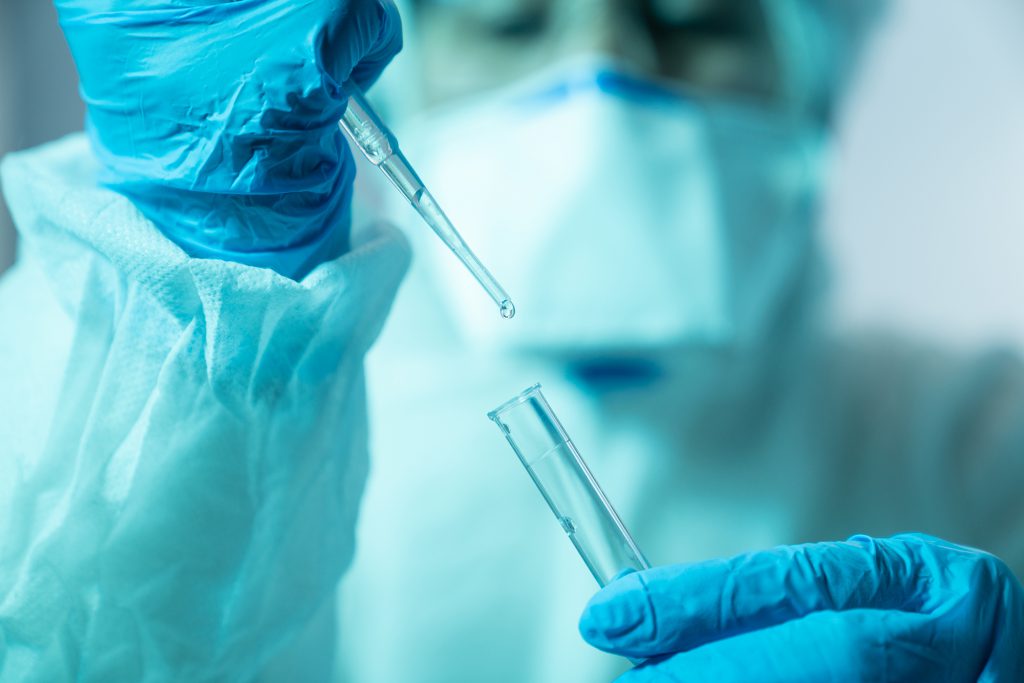
The Peter Munk Cardiac Centre is actively contributing to worldwide research efforts designed to prevent and neutralize the effects of COVID-19. Donors are enabling the Centre to play a critical role in unearthing new strategies that will bring an end to the pandemic as quickly as possible.
Below is a summary of some the key research projects underway.
Allowing one ventilation device to serve two patients with COVID-19
Dr. Azad Mashari, cardiac anesthesiologist at the Peter Munk Cardiac Centre, and his team have developed a 3D printed splitting device will allow two patients with COVID-19 to be treated with a single ventilator. The device is being produced within the Lynn & Arnold Irwin Advanced Perioperative Imaging Lab. In helping to maximize the use of a limited supply of ventilators, the splitter’s design is being shared widely so the technology can be adapted and implemented in health systems around the world. You can listen to Dr. Mashari discuss the project on CBC Radio from May 9 here.
Predicting patient risk
There is a correlation between COVID-19 and heart disease. Patients who develop cardiac injury during infection of COVID-19, those who have pre-existing cardiovascular disease, and those who have cardiovascular risk factors (e.g., diabetes) are at higher risk for complications. Dr. Dinesh Thavendiranathan, cardiologist at the Peter Munk Cardiac Centre, is using cardiac blood biomarkers to predict who is most at risk and identify optimal locations for drug therapy.
In Ontario, there has been rapid mobilization of real-world data on COVID-19 testing and results. Dr. Douglas Lee, cardiologist, and Dr. Bo Wang, artificial intelligence lead at the Peter Munk Cardiac Centre, are synthesizing this data and utilizing machine learning to identify predictors of COVID-19 for those who have undergone testing and identify new predictors of adverse short-term outcomes among those infected with COVID-19.
Repurposing current treatments for blood clots and diabetes
Dr. Patrick Lawler, cardiologist at the Peter Munk Cardiac Centre, is conducting a large-scale international clinical trial to test whether the blood thinner heparin can help improve survival rates for COVID-19 patients. There has been a high incidence of blood clots associated with COVID-19 infections, increasing the risk of a pulmonary embolism or stroke. Dr. Lawler and his team are hoping patients can receive heparin before they are admitted to the intensive care unit (ICU) to increase their chance of survival.
COVID-19 damages heart muscle in approximately 20% of patients, with half of these patients succumbing to the virus. Previous studies have shown the damaging processes can be inhibited by new diabetes drugs, known as GLP-1 receptor agonists (GLP-RA), which have already lowered the risk of heart attack and strokes in patients with diabetes. Dr. Vlad Džavík, cardiologist at the Peter Munk Cardiac Centre, is assessing whether the GLP-1 agonist drug semaglutide will reduce heart damage caused by COVID-19 before patients are admitted to the ICU.
To learn more about other COVID-19 projects underway at the Peter Munk Cardiac Centre, including the establishment of a COVID-19 virtual clinic, click here.
